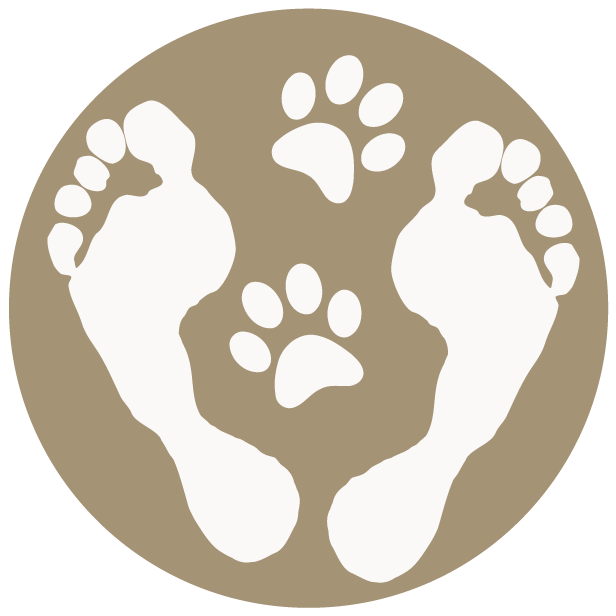#1 of the “Big Human Things that Contribute to the Big Dog Things”
A few days ago, we shared a post on the 6 big "human things" that contribute to "dog things". I'll be doing a little write up for each of "the things"; the first being trauma--- the "f-word" of the emotional body (...or is it?).
Trauma comes in many different shades and different forms; but the most common form of it is *emotional trauma.* It's like a generational virus that continues to get passed down.
Humans don't do emotion or "feelings" well. Specifically "negative" and uncomfortable ones: anger. Sadness. Disappointment. Frustration. Insecurity. Fear. Doubt. Worry. Anxiety. Loneliness. Betrayal. Abandonment. Deception. Confusion. Hopelessness. Inadequacy. Misunderstood. Rejected. Unsafe. Resentful. Insignificant. Invisible. Grief.
We don't know how to put language to them.
We don't know how to handle them.
We don't know how to express them.
But we do know- and what we've been taught- is how to suppress and repress them.
We know how to shut them down, stuff them down, shut them off, avoid, deny, resist, numb.... or discharge them through an explosion.
We watched how our parents handle emotion (and they watched their parents... and they watched their parents... ). We saw them rage. Shut down. Overly emote. Avoid. Withdraw. We may have had completely emotionally unavailable parents or, conversely, emotionally overbearing parents.
Beliefs started forming...."I'm not worthy of love", "I'm not good enough", "I don't matter", "Emotion is bad", "Emotion is dangerous and unstable". We can see evidence of what our beliefs (and wounds) are through our thoughts, words, "triggers", choices, and behaviors.
Coping techniques and tactics "to deal" (and "avoid the feel") were adopted -- all of which likely live on today.
The incredible Dr. Gabor Mate (trauma and addiction expert) has a brilliant quote that goes a little something like this, "Trauma isn't what happens to you; it's what happens inside of you as a result of what happens to you." Really let that sink in for a moment.
While mental health is getting a lot of attention these days, what's being heralded as "mental health issues" is actually **emotional health issues.** Outside of "faulty wiring" or legitimate medical issues (rarely the case), what we see and what's being "treated" is actually the outcome of the impact emotional trauma has had on us..... and also how we learned to cope with it. Perfectionism. Lone-wolfing it. Addiction (work, tobacco, drugs, alcohol, gaming, prescription drugs, food, tv, social media, etc.). Depression. Anxiety. Overachieving. Insecurity. Eating disorders. OCD. Paranoia. PTSD. Isolation.
Regardless of who (employee, client, spouse, friend, etc.), it's important to remember that everyone has a story. Everyone has a reason for choosing what they choose, saying what they say, and doing what they do. The person who is chronically late, is afraid of commitment, lacks responsibility, doesn't follow through, constantly places blame, belittles and breaks down others, takes everything personally, struggles with words, tries to control everything, is afraid to make a mistake, is constantly "hustling" and overachieving, etc.
"Beneath every behavior there is a feeling. And beneath each feeling is a need. And when we meet that need, rather than focus on the behavior, we begin to deal with the cause, not the symptom." ~ Ashleigh Warner (btw, the same goes for dogs and canine behavior)
We need more compassion and curiosity and less judgment and assumption. Towards ourselves, other people, and our dogs.
We're all simply trying to find a sense of *emotional safety* and equilibrium in a world where this likely wasn't provided and didn't exist, and we're trying to deal with what was handed to us in the best way we can.
In working with dogs and behavior, we almost always end up stumbling upon (and speaking to) some level of trauma (on either, but usually both ends of the leash). Most dogs didn't have their emotional needs met, as well, and what we see in terms of choices and behavior is an offshoot of this.
When I started writing my third book, "The Human End of the Leash", the original title was actually "The Gifts of Trauma."
Trauma may be bring with it a boat load of discomfort, challenge, and struggle.... but it's also a key player in developing inner strength, depth, wisdom, resiliency, and a sense of purpose. It can also bring with it reconnection. Have you ever watched people come together after a devastating event? All of a sudden positions, titles, salaries, cars, etc. don't mean a thing. Helping the human or animal in front of us does.
There are gifts in trauma... if we're willing to see them.
Every big thing I've ever done was the result of me finding purpose through trauma. Using that experience to grow and serve. Health and life coaching, nutrition and personal fitness, trauma work and "emotional fitness", dog training and behavior, authorship....
Developing a better relationship with trauma and emotion... getting curious about them and having a deeper conversation with them.... accepting and befriending them, and developing a greater sense of emotional agility and fluency will serve us all in *every* role we play in life.
You've often heard me say that "behavior is information".... well, so is emotion. And it's time we start listening.

